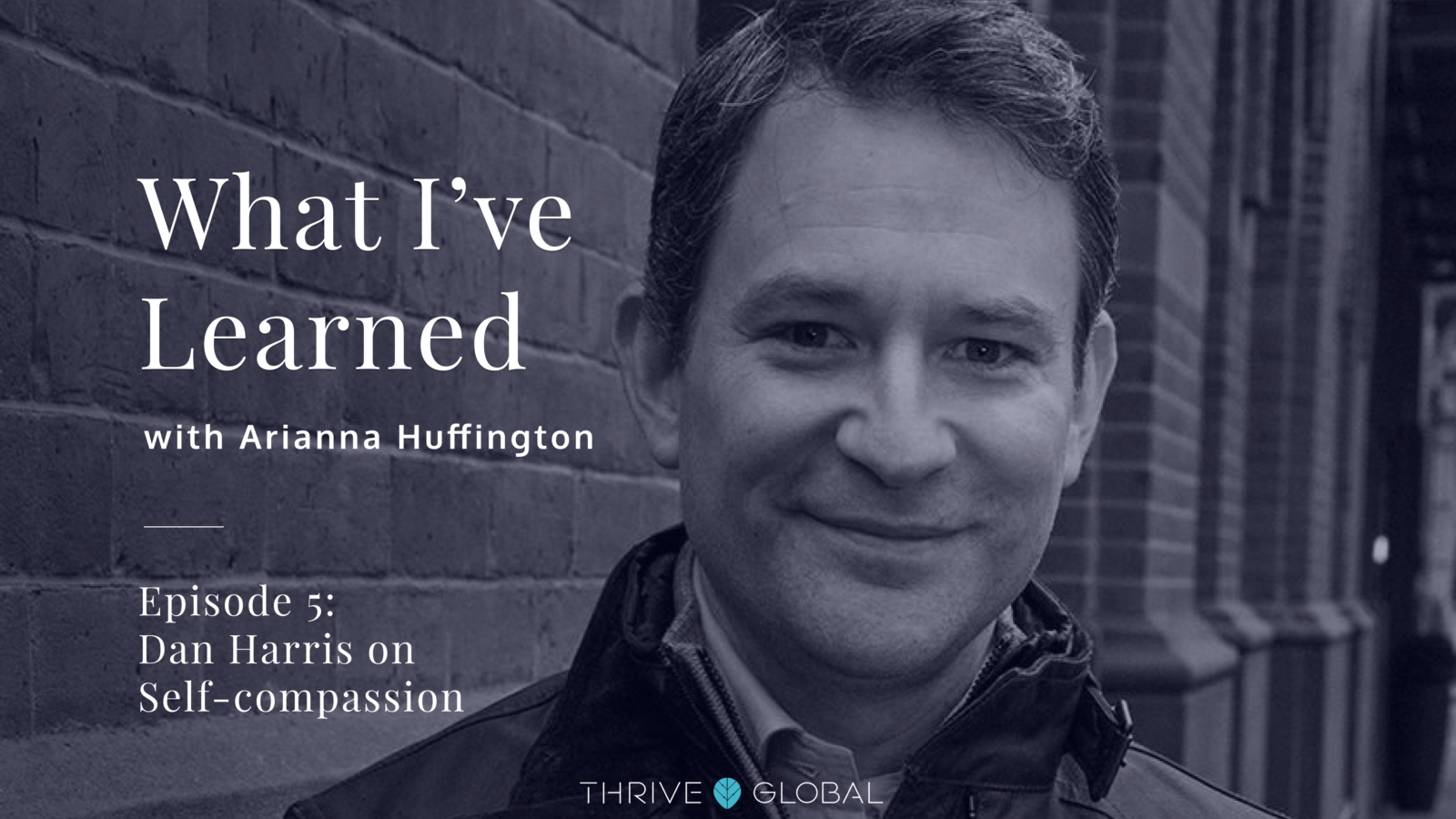In the “What I’ve Learned” podcast, Arianna Huffington sits down with people she loves and admires, in fields from music and technology to sports and business, to explore the lessons they’ve learned over the extraordinary past year about themselves, their lives, and what they truly value.
This week, Dan Harris, best-selling author of 10% Happier and co-anchor of the weekend edition of “Good Morning America,” on the difficulty — and the many rewards — of learning self-compassion in his life.
On getting over his reluctance to try self-compassion:
“All of that was very hard to take seriously. The big block was that it just struck me as unforgivably saccharine. My reaction was, ‘Oh, so you want me to, like, hug myself or rub my own chest and say nice things to myself?’ That just sounds very strange, and maybe even goofy to me. So the big breakthrough for me in the last six months has been to get myself to do something I call ‘embracing the cheese,’ and actually incorporating self-compassion into my meditation practice and into my life.”
On the benefits of self-compassion:
“There’s a lot of science here that strongly suggests that people who are more self-compassionate are better able to stick to their goals long-term. They have more compassion towards other people. They’re happier. There’s all sorts of physiological and even behavioral impacts of this practice. I like to think of it as a kind of an upward virtuous cycle that when your inner weather is balmy, then your relationships improve. And of course, since relationships are probably the most important contributor to human flourishing, then your inner weather gets even nicer as a consequence of your improved relationships, and upwards we go.”
On using self-compassion in his meditation practice:
“How often do you close your eyes, then you try to bring your full attention to the feeling of your breath coming in and going out. And then every time you get distracted, which will happen a million times, you start again and again. That moment of waking up from distraction is often an opportunity for beating yourself up. If you can have a self-compassionate attitude like, ‘Oh, can I treat this as a data point?’ Can I just see how wild my mind is and realize that, oh yeah, actually the point of meditation isn’t to stop thinking, it’s to see the inner cacophony clearly so that it doesn’t own me anymore.”
To hear more from Dan, listen to this full episode of “What I’ve Learned,” available wherever you get your podcasts.


